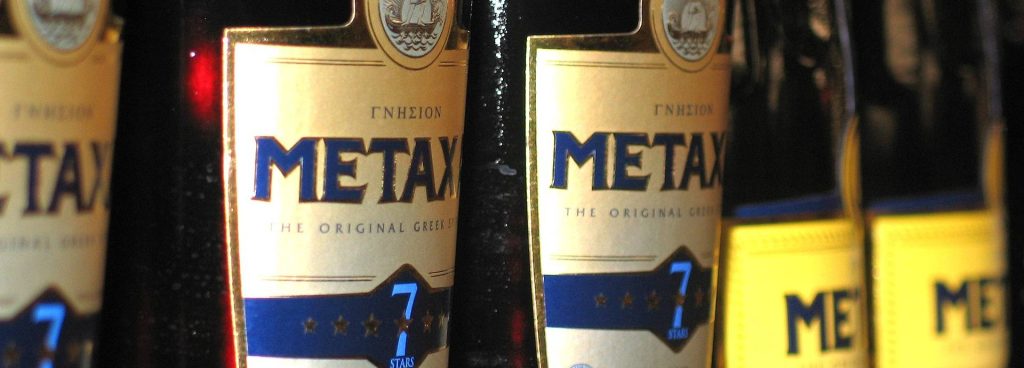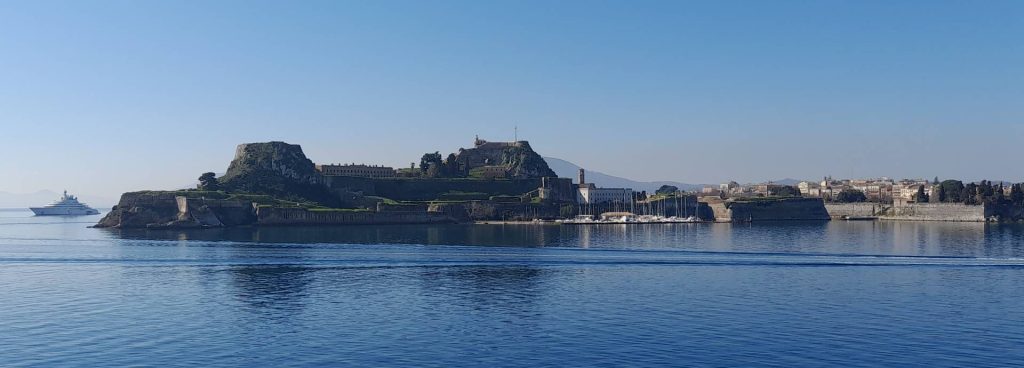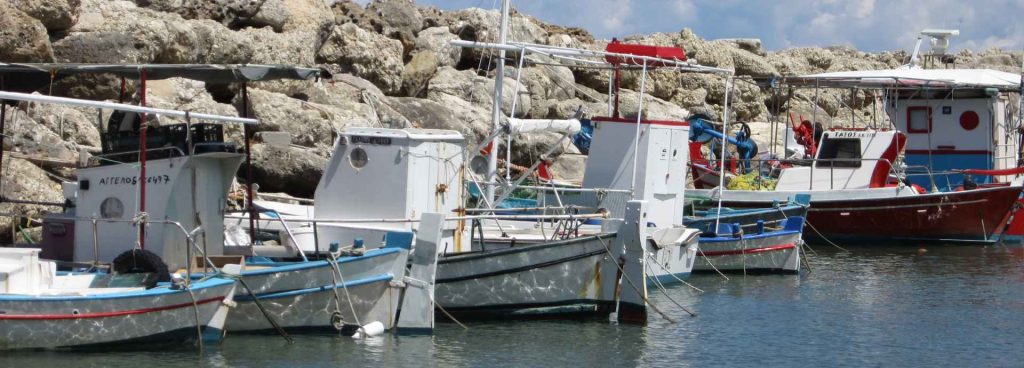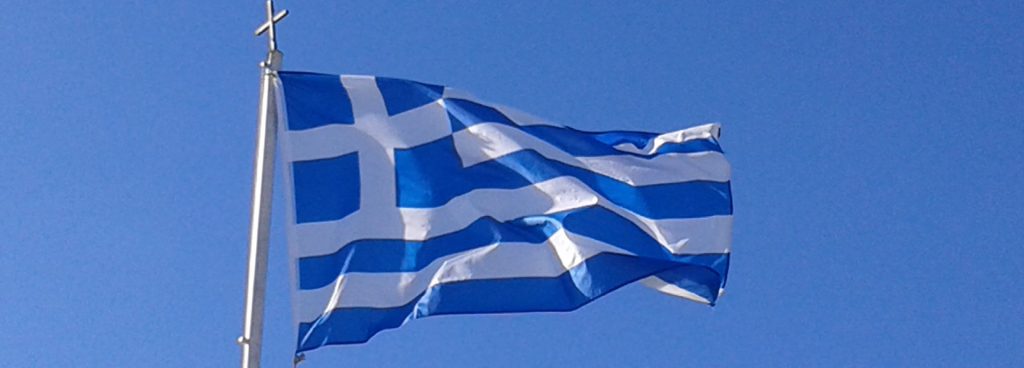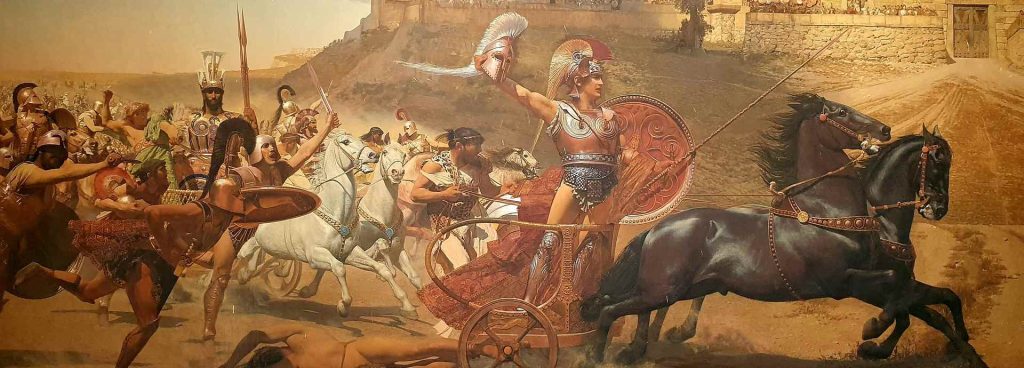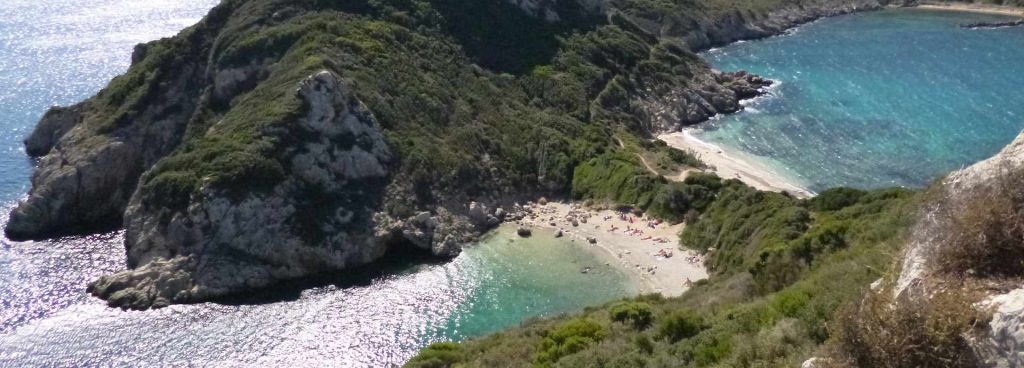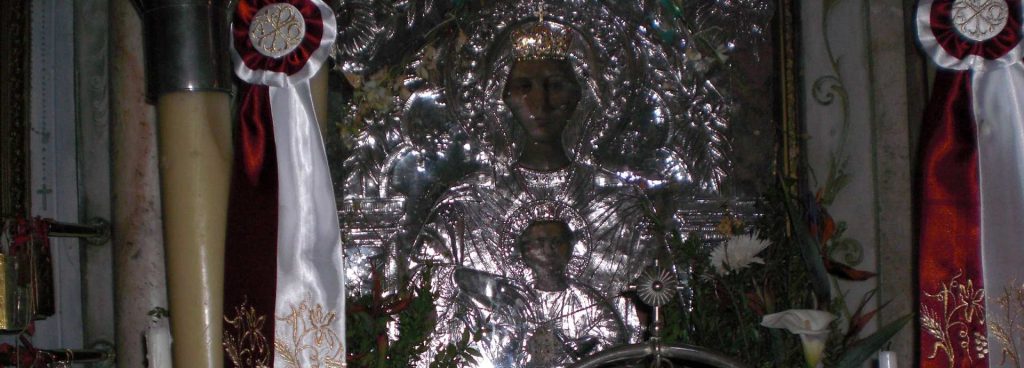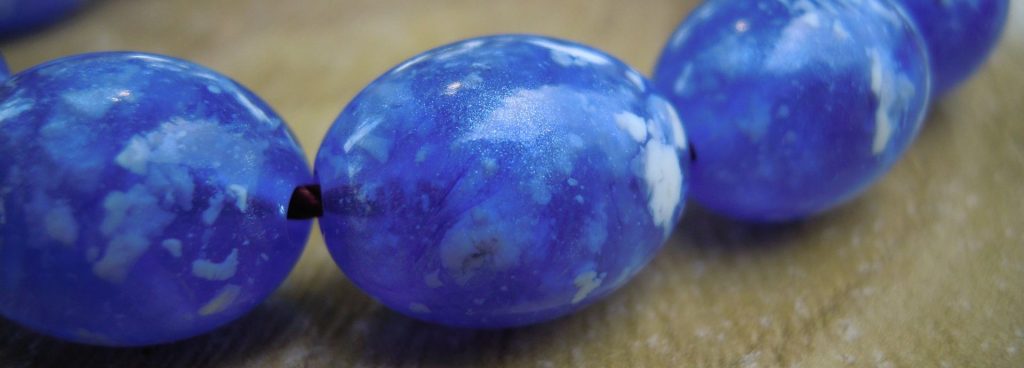From the Bronze Age to today
Corfu has a permanent place in Greek mythology thanks to its mention in Homer's Iliad. The hero of the Trojan War, Odysseus, is said to have been stranded here on the island. The Odysseus Cave is located near the town of Paleokastritsa. There you can also see - according to legend - the petrified boat of Odysseus - a small rock in the sea.
Archaeological finds suggest that the island was inhabited as early as the Bronze Age (after 2000 BC).
The city of Kerkyra (Corfu) was founded by Corinthians in the 8th century BC. founded. It developed rapidly and became a strong adversary to the mother city of Corinth. The inhabitants of Kerkyra defeated the Corinthians in several sea battles and formed an alliance with Athens. This triggered the Peloponnesian War. With the death of the king of Athens, Pericles, Athens' strong position in Greece waned.
For Kerkyra this meant that it was exposed to attacks from other naval powers. So the Spartans conquered Kerkyra. However, the Ionian Islands joined in 377 BC. in defense against the Spartans and defeated them with the help of Athens.
The king of Macedon, Philip II, was born in 338 BC. Ruler over all of Greece. After the assassination of Philip II, his son Alexander was proclaimed king (336 BC), who in 323 BC. died. 295 BC Corfu fell to King Pyrrhus of Epirus, whose empire stretched across the mainland across from the island of Corfu.
The Roman Empire meanwhile expanded further and further east and finally encompassed all of Greece. Corfu submitted in 229 BC. voluntarily of Roman rule. When the Roman Empire was divided in 395 AD. Greece became part of the Eastern Roman Empire, which was continued in the Byzantine Empire. The Orthodox Church became predominant.
In the year 1200 the crusades began in Europe. The Venetians conquered Constantinople as part of the Fourth Crusade. Venetians, Genoese and Western Crusaders divided all of Greece among themselves. Corfu was initially able to evade this sphere of influence, but fell to the Duke of Anjou in 1267. When the Turks took control of Greece in 1386, Corfu and the other Ionian Islands submitted to the Doge of Venice. The Turks were the only Greek island unable to conquer Corfu.
After about 400 years, the Venetian rule ended in 1797. The Ionian Islands have now been assigned to France. Napoleon founded the Ionian Republic. The French were expelled again as early as 1799. The Russians put Corfu under their suzerainty until 1807.
After the Congress of Vienna, Corfu was under the protectorate of England from 1815. Corfu ceded this to Greece on May 21, 1864.
During the First World War, Corfu was the seat of the Serbian government. The island was therefore bombed and occupied by the Italians.
In the course of the Second World War, along with the Italians, the Germans also came to occupy the island. Corfu town was bombed and partially destroyed. Many islanders still remember this time.
After the end of the war the occupiers withdrew and Corfu became Greek again. After the overthrow of the military regime (1967-1974) that King Constantine II had exiled, the Greek people voted in a referendum in 1974 to abolish the monarchy - the republic was proclaimed.
Greece has been an equal member of the EU since 1981. The economy and especially tourism expanded.
As a result of the financial crisis that began in 2008, Greece suffered heavy losses. On April 23, 2010, Greece officially applied for EU aid in order to be able to repay due loans and avoid national bankruptcy.
Although the situation in the country is slowly improving, the population is still suffering a lot from the crisis, especially from a very high unemployment rate.

